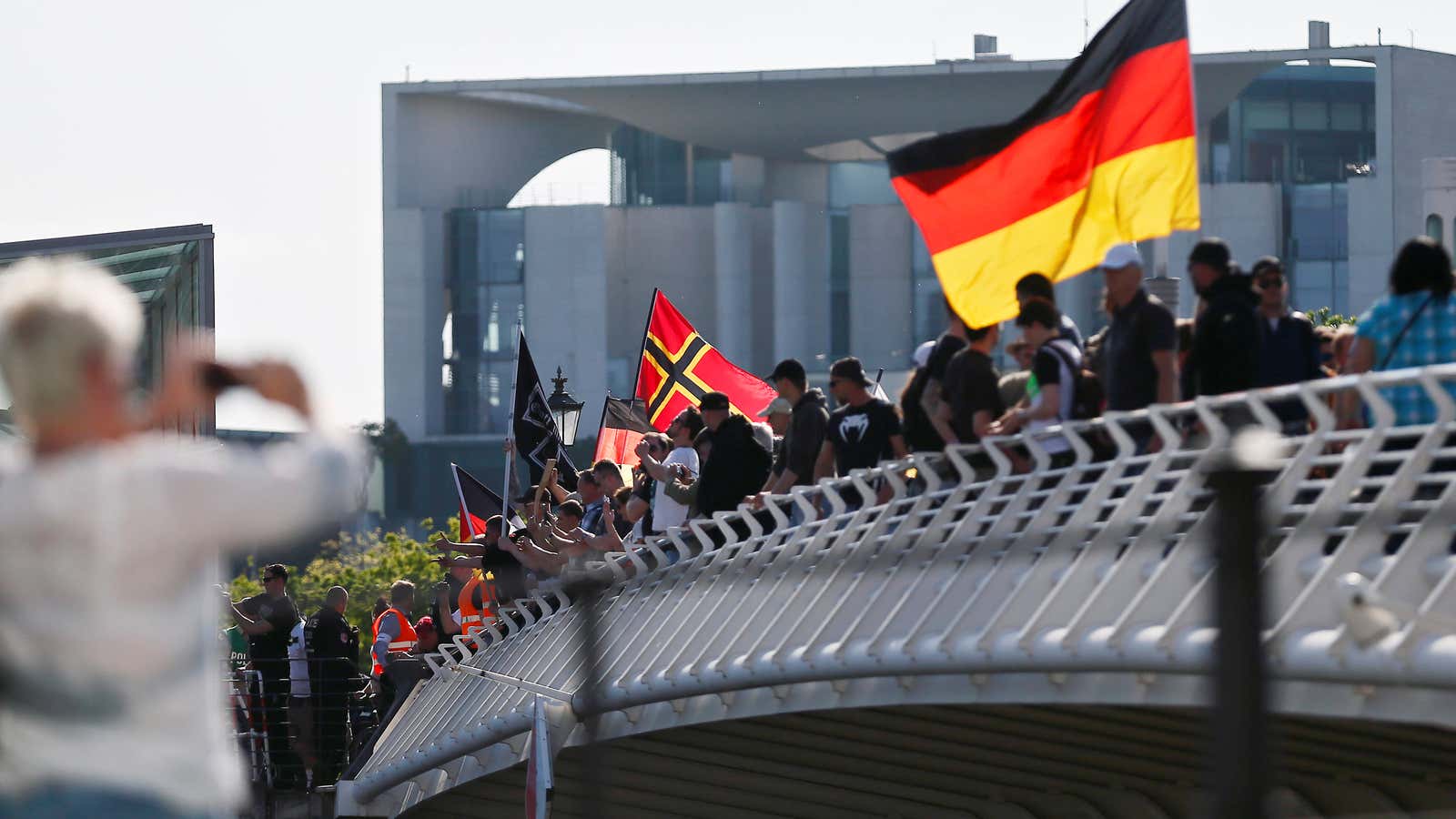The world will be watching Germany over the next six weeks to see if the populist sentiment that carried Donald Trump into office and Britain to vote Brexit will hurt Angela Merkel’s Christian Democrats. If populism sentiment does prevail, then it will be a shock, as polls right now show that the Christian Democrats are way ahead of even their closest rivals.
Populism, which the Bertelsmann Institute defines as being anti-establishment, anti-pluralistic, and pro national sovereignty, is definitely present among German voters, according to the institute’s three-part survey on populism in Germany between 2015 and 2017. The results showed (pdf in German) that 29.2% were deeply populist, 33.9% held some populist views and the rest couldn’t be described as populist at all.
Robert Vehrkamp, director of the Future of Democracy program at the Bertelsmann Institute, says that for him the most surprising discovery was that populism in Germany is relatively moderate. “Sometimes one had the feeling that a populist mass takeover was at the door in Germany too,” Vehrkamp told Quartz. “That has been put in perspective by this study.”
The survey asked how people felt about hot-button topics like social inequality, the EU, democracy, and immigrants. It found that Germany’s right-wing populists are often “disappointed democrats,” not radical enemies of democracy—and that their big obsession is refugees.
“This is a core difference to the USA, France and Great Britain,” Vehrkamp says. “All the themes that are normally mobilizing for populists like criticism of globalization, Europe, bringing down the political elite or radical criticism of the establishment… these are all things that play absolutely no role in Germany.”
He puts this down to Germany’s robust economic health, the fact that social divisions are not as pronounced as in other countries, and that the nation benefits from its position in the European Union.
“I would go as far as to say, that if we hadn’t had this refugee crisis in Germany, then we wouldn’t be talking at all in Germany about populism and the AFD at this moment,” Vehrkamp says.
60% of the seriously populist-minded support the right-wing Alternativ für Deutschland (Alternative for Germany) party. The AfD, which began in 2013 as a euro-skeptic party, but pivoted to focus on immigration during the 2015 refugee crisis. It was a time when the country was taken by surprise with the mass influx of migrants and Merkel made Germany welcome refugees with an open door policy, which led to her winning the Time Person of the Year award.
The AfD now has seats in 13 of 16 regional German parliaments, but its popularity has dropped dramatically in tandem with a much calmer refugee situation in Germany. Last weekend’s polls showed it would win about 8% of the vote—down from a high of 14% last September.
The AfD’s election campaign is focused heavily on an anti-Muslim message and an appeal to nationalistic pride, with posters like the one below proclaiming “Burquas? We’re into bikinis!” and the line “Believe in yourself, Germany!” while others show a piglet, saying “Islam doesn’t fit with our cuisine.”

Six weeks is a long time in politics, and attacks could of course, see a rise in populist anger, especially if they were carried out by Islamists. “If the refugee crisis were to break out again… then that of course would be grist for the AfD’s mill,” says Vehrkamp. “But that’s the only topic that populism can grown on here.”
